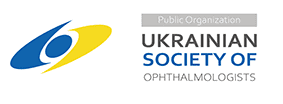SCIENTIFIC MISCONDUCT, EXPRESSIONS OF CONCERN, AND RETRACTION
Scientific misconduct
Scientific misconduct in research and non-research publications includes but is not necessarily limited to:
- data fabrication;
- data falsification, including deceptive manipulation of images;
- purposeful failure to disclose relationships and activities;
- and plagiarism.
When scientific misconduct is alleged, or concerns are otherwise raised about the conduct or integrity of work described in submitted or published papers, Journal of Ophthalmology (Ukraine) initiates appropriate procedures, considers informing the institutions and funders, and may choose to publish an expression of concern pending the outcomes of those procedures.
If the procedures involve an investigation at the authors' institution, the Editors seek to discover the outcome of that investigation; notify readers of the outcome if appropriate; and if the investigation proves scientific misconduct, publish a retraction of the article.
Retraction
Expressions of concern and retractions are labelled, appear on an electronic or numbered print page that is included in an electronic or a print Table of Contents to ensure proper indexing, and include in their heading the title of the original article.
Online, the retraction and original article are linked in both directions and the retracted article is clearly labelled as retracted in all its forms (abstract, full text, PDF).
The text of the retraction explains why the article is being retracted and include a complete citation reference to that article.
Retracted articles remain in the public domain and are clearly labelled as retracted.
Retraction of publication is considered if:
- there is clear evidence that the findings are unreliable, either as a result of major error (eg, miscalculation or experimental error), or as a result of fabrication (eg, of data) or falsification (eg, image manipulation);
- the publication constitutes plagiarism;
- the findings have previously been published elsewhere without proper attribution to previous sources or disclosure to the editor, permission to republish, or justification (ie, cases of redundant publication);
- the publication contains material or data without authorization for use;
- copyright has been infringed or there is some other serious legal issue (eg, libel, privacy);
- the publication reports unethical research;
- the publication has been published solely on the basis of a compromised or manipulated peer review process;
- the author(s) failed to disclose a major competing interest (aka, conflict of interest) that, in the view of the editor, would have unduly affected interpretations of the work or recommendations by editors and peer reviewers.
The Committee on Publication Ethics (COPE) has detailed the procedures for handling various misconduct cases, developed flowcharts for further guidance on retractions and expressions of concern and for guidance about avoiding referencing retracted articles. The Journal of Ophthalmology (Ukraine) will use these procedures when dealing with questions of scientific misconduct or expressions of concern (http://publicationethics.org/resources/flowcharts )











